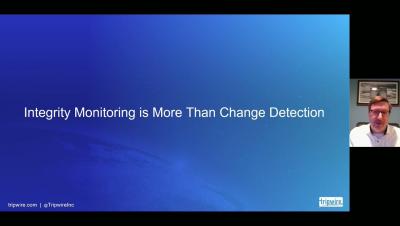Security | Threat Detection | Cyberattacks | DevSecOps | Compliance
Tripwire
Addressing Log4j2 Vulnerabilities: How Tripwire Can Help
On December 9th 2021, Apache published a zero-day vulnerability (CVE-2021-44228) for Apache Log4j being referred to as “Log4Shell.” This vulnerability has been classified as “Critical” with a CVSS score of 10, allowing for Remote Code Execution with system-level privileges. If you are currently working to identify instances of this vulnerability, Tripwire can help.
Cybersecurity Standards, Ransomware, and Zero Trust: 3 Key Considerations for the UK Government
In September 2021, Tripwire released its annual report to examine the actions taken by the U.S. federal government to improve cybersecurity. The report also looks at non-government organizations so that we may catch a glimpse of the differing views and approaches of each, which makes for interesting (and revealing) insights.
Mitigating Industrial Production Risk with Tripwire
It seems that the most popular topics in cybersecurity for the last year has been zero trust as well as the convergence of Information Technology (IT) and Operational Technology (OT). These developments are good, as they signal some positive motion towards better overall security. Some of the current risks are worth noting, with a forward glance to protecting specific industries such as oil and gas production plants.
How Building a Solid Foundation Will Help Grow Your Cybersecurity Program
Cybersecurity is such a broad subject that many times, an organization can become stifled when trying to develop a full cybersecurity program. Some organizations that have already put a cybersecurity program in place can also unpleasantly discover gaps in their efforts, making the entire venture seem moot. One way to effectively get started, as well as to prevent gaps, is to build a good foundation upon which a cybersecurity program can grow and mature.
What Are the Key Challenges for Cybersecurity Professionals Going into 2022?
Tripwire recently conducted a series of surveys and interviews to understand IT professionals who manage security for their company. The cybersecurity landscape is constantly changing, new challenges are rapidly emerging, and new threats have surfaced, especially throughout the pandemic. We were curious to know some of the struggles that security professionals experience as a part of their job.
A Bank SMS Text Phish Attempt
Phishing attempts over text messages are becoming more prevalent. I received an SMS text message that contained a phishing attempt for a Canadian Bank. The message implied that I have received a new notification with this bank and I should visit the provided link. I usually do not click on any links, but I decided to see what would happen when I navigated to the page.
Australia Leads with Controversial Cyber Laws
The Australian government is looking to pass the Security Legislation Amendment (Critical Infrastructure) Bill 2020, an overhaul which is aimed to help Australian businesses fend off cyberattacks. The Bill expands the business sectors that were previously defined as critical infrastructure by adding, amongst others, Food and Grocery, Finance and Banking, Universities, Communications, Defense, Energy, and Transportation to the list.
The Cybersecurity Skills Gap: Myth or Reality?
Take a glance on social media on any given day, and we’ll hear from commentators stating how there is a (cyber) skills gap and that it must be addressed if we are to meet the challenges we are all increasingly facing. Let’s be clear about something before we continue. If we are saying that there is a skills gap, then there are organizations out there that are ready to hire cybersecurity professionals now.
CIS Control 14: Security Awareness and Skill Training
Users who do not have the appropriate security awareness training are considered a weak link in the security of an enterprise. These untrained users are easier to exploit than finding a flaw or vulnerability in the equipment that an enterprise uses to secure its network. Attackers could convince unsuspecting users into unintentionally providing access to the enterprise network or exposing sensitive information.



